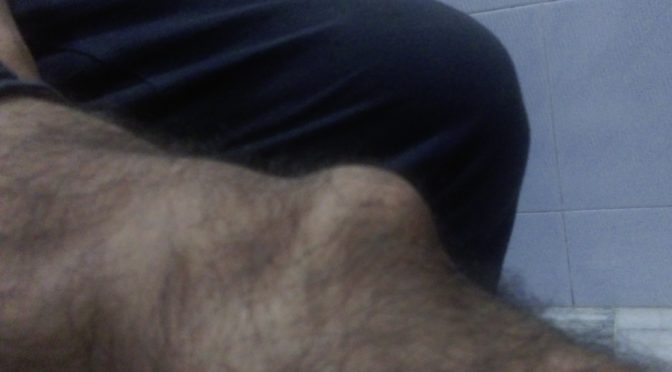Gout is metabolically mediated type of arthritis strongly associated with genetics as a major cause, to which diet and lifestyle plays a contributory factor in its pathogenesis.It is primarily caused due to disorder of purine metabolism (purine is one of the major component of our gene it forms base pairs / nucleotides with pyrimidine to give structure to our gene; also purine is present in many food that we eat esp. certain sea food and many pulses).
Its when the final product of purine metabolism i.e uric acid, starts crystallizing and forming Monosodium Urate Monohydrate then it starts depositing in joint and tissues around joint its called gout and not mere hyperuricemia can be termed as gout.
PATHOGENESIS OF GOUT
GOUT PATHOGENESIS FLOW CHART
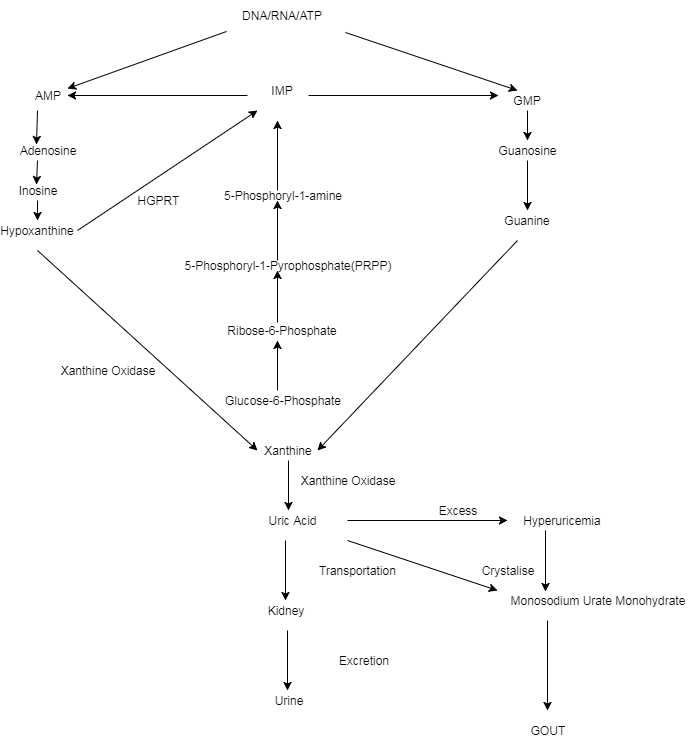
Overproduction of uric acid may be due to one or more of following factors:-
- Catabolism,
- Loss of purine salvage mechanism,
- Defective or sluggish transportation,
- Under excretion of uric acid,
- Reduced elimination of uric acid due competition of metabolites for elimination,
which results into hyperuricemia triggering Gout.
Although hyperuricemia has been found to trigger gout but many having maintaining uric acid within normal limits still develop gout and many having uric acid on higher side are still not developing gout. So genetics has major role in determining at what level of serum uric acid the patient may develop Gout.
When Uric acid crystalises into monosodium urate, it then starts precipitating in joints, tendons and surrounding tissues,in small clusters of deposits called tophi. Each tophus is collection of monosodium urate crystals surrounded by a protein wall. This protein wall prevents its interaction with surrounding cells and thus prevents inflamatory response. Occasionally this walled-off tophi breaks open the protein wall and so the urate crystals comes out naked in contact with surrounding cells, which may be due to medical, surgical metabolic, physical stress or sometimes even rise in serum uric acid levels may lead to breaking of this wall, which causes acute inflamation and sets in acute arthritis within few hours.
SYMPTOMS OF GOUT
Its usually observed that small joints of extremities which are not sufficiently insulated to tolerate cold and shocks and those that are in region where circulation is affected due to gravity dependence, like great toe and ankle , small joints of feet, hands and wrist are more prone compared to other joints. Although it can affect all the joints and can present itself with different signs and symptoms but it is classically known as Podagra for the one characteristic symptom it frequently presents in most of the patients, its the intense burning and sharp excruciating pain with mild redness and swelling especially on base of great toe (at first metatarso-phalangeal joint) starting suddenly and frequently at night waking patient up from sleep.
GENES ASSOCIATED WITH HYPERURICEAMIA AND GOUT
1) Absence of gene associated with breakdown of Uric Acid.
In humans unlike other carnivorous primates(meat eater in particular) the Uricase /urate oxidase, an enzyme which breaks down uric acid to 5hydroxyisourate then to allantoin, has became non functional during evolution phase and is present only as psuedogene/junk gene so, the humans have tendency towards probability of elevated levels of uric acid due to lack of breakdown and accumulation which may trigger gout.
Uric Acid though may have beneficial effect as its a very powerful antioxidant and scavenger, helping body to protect itself from oxidative damage and thus prolonging life and reducing age-specific cancers, so hominids may have opted out the Uricase gene in selective evolution.
After we identified urate oxidase and its activity, we have artificially prepared protien Rasburicase. Rasburicase is now used to treat patient developing acute hyperuriceamia during chemotherapy. Also a PEGylated form of urate oxidase is in clinical development for treatment of chronic hyperuriceamia having “treatment failure gout”.
2) Defect in genes associated transportation and transfer of uric acid for elimination.
- SLC2A9 The encoded protein by this gene plays a role in transportation of uric acid and also in development and survival of chondrocytes in the cartilage matrix. Any SNP (single neucleotide polymorphism) in this gene causes transcript variants encoding different isoforms, which increases the risk of development of Hyperuriceamia and also it may alter joint cartilage matrix both of these anomaly plays a major role in formation of gout.
- SLC22A12 has 2 transcript variants encoding different isoforms; basically it encodes urate transporter and urate anion exchanger protein which regulates the level of urate in the blood; its an integral membrane protien primarily found in kidney; SNP of this gene causes altered reabsorption of Uric Acid by the kidney.
3) Genes associated with purine salvage mechanism.
- PRPSAP1 and HPRT1 are gene related to Purine salvage mechanism.
- Phosphoribosyl Pyrophosphate Synthatase associated Protein 1(PRPSAP1).
- PRPP (5-phosphoribosyl 1- pyrophosphate) is a substrate used by HGPRT during purine salvage pathway.
- Hypoxanthine Phosphoribosyl Transferase 1 (produce hypoxanthine-guanine phosphoribosyl transferase (HGRPT)which plays main role in generation of purine nucleotide through purine salvage pathway).
SNP or deletion of any of the above mentioned gene causes hyperuriceamia and also other severe conditions.
4)Certain Genetic Disease And Syndromes Presents Hyperuricemia And Gout As One Of The Symptom Like In :-
- Familial Juvenile Hypouricemic Nephropathy (FJHN) associated with UMOD gene. UMOD gene produces Tamm horsfall protien, whose function is still not well understood but defect in this gene produce many autosomal renal disorders characterised by juvenile onset of hyperuricemia, gout and progressive renal failure.
- Medullary Cystic Kidney disease (type I and II).
- Lesch Nyham Syndrome is an X-linked Syndrome caused due to HPRT1 Gene deletion (details of HPRT1 have been mentioned elsewhere above in this page).
Physical trauma, Wasting Diseases ,Surgery are associated with increased uric acid levels.
MEDICINES ASSOCIATED WITH HYPERURICEMIA
Diuretics in higher doses, niacin, aspirin ACE inihibitors angiotensin receptor blockers beta Blockers ritonavir pyrazineamide ciclosporin tacrolimus.
DIAGNOSIS OF GOUT
In patients with recurrent acute episodes of arthritis especially of great toe accompanying hyperuricemia is sufficient to establish the diagnosis. However an episode of acute arthritis in many instances may not accompany hyperuricemia, so arthroscentesis should be done for synovial fluid analysis for visualising monosodium urate crystals or tophus is the only confirmatory test whether patient is hyperuricemic or not.
DIET AND LIFESTYLE ASSOCIATED TO GOUT AND HYPERURICEMIA
Food rich in purine especially red meat and sea food is considered to be associated with hyperuricemia. Its found that moderate consumption of purine rich vegetarian diet is not associated with the condition. Also total protien has no impact untill not much of it is in form of purine.
Alcohol consumption and Fructose sweetened food and drinks are strongly associated with it.
Metabolic syndrome, diabetes, cardiovascular disease, and aging process are also associated with this condition and they tend to worsen each other.
Vitamin C, Coffee and switching to Dairy Products for protein requirement will also help.
Weight reduction and regular exercise helps reduce Uric acid.
Raised uric acid level is also associated with renal stones and urate nephropathy.
HOMOEOPATHIC REMEDIES FOR GOUT and HYPERURICEMIA(raised serum uric acid)
ARNICA MONTANA
Arnica is a traumatic remedy par excellence. Arnica is an useful remedy in chronic cases of gout. Old cases of gout rouse into a new soreness of joints with great sensitiveness. Arnica is an important remedy in injuries, bruises, shocks etc. Trauma in all its varieties mental or physical and their effects recent or remote are met with this remedy. If we observe a arnica patient in order to get the external manifestations of his state, he is constantly moving,turning and highly restless. The patient has sore lame bruised feeling, so sore that he can lie on one part only for a while and must keep changing position as the bed he lies on feels hard. Limbs ache as if beaten. Inflamation of joints.
ACTEA RACEMOSA
Actea racemosa is a very well indicated remedy in gouty and rheumatic diathesis. Swelling of joints with raised uric acid levels. Its muscular and crampy pains are primarily neurotic origin, occuring in nearly every part of the body. Pains of actea racemosa are like that of electric shock, comes suddenly and also its relieved suddenly. There is stiffness and pain in the tendo achillies. It has wide action on muscles nerves joints. Rheumatic aching pains in joints and muscles with stifness of joints. Causes depression of mind with low spirits and exhaustion along with oversensitiveness especially during pain.
ABROTANUM
Abrotanum is a very valuable remedy which is used more frequently. Indicated in gout and increased uric acid levels. Rheumatism and gout alternate with haemorrhoids. Abrotanum increases circulation and opens small arteries as a result the blood flow and local defense of joints and muscles is stimulated. Abrotanum relives gout pain.
ACONITE NAPELLUS
Aconite napellus is very well indicated in rheumatic and gouty conditions of joints. Those that come on as first attack. Not old rheumatic and gouty attacks but those that come on from exposure to cold. Rapidity of action of aconite determines its symptomatology. Presents with Symptoms are acute painful and violent pain in the joints. Aconite is indicated in acute onset of pain and swelling. Used in 1st stage of inflammatory condition with severe mental restlessness. Fear. Fright and anxiety.
BELLADONNA
Belladona is useful in inflamtory rheumatism and gout.Symptoms that suggest this remedy are sudden onset, swollen joints, red hot, throbbing pain with extreme sensitiveness. Complaints of belladona that is the pains and suffering come on suddenly run a regular course and subside suddenly. Sudden attack of cold worsens the complaints.
COLCHICUM AUTUMNALE
Colchicum is a primary remedy used for treatment of gout because of its effectiveness.most useful in chronic gout.
Colchicum has marked action of the joints, indicated in case of gouty arthritis and increased uric acid levels. Helps in relieving the gouty paroxysms. Inflammation of great toe, gout in heel, cannot bear to be touched. Oedematous swelling and coldness of feet. Joints are red hot swollen. Pains are usually worse in evening and night.
LEDUM PALUSTURE
Ledum pal is mostly used in rheumatic and gouty diathesis. Remedy affects the fibrous tissues of joints especially small joints, ankles,heels.Used in cases where the gouty pains shoot through the foot, limbs and smaller joints. There is great swelling in the foot and ankle. Joints hot and swollen with with cracking in joints. Gouty nodosities. Ball of great toe is swollen. Soles are very painful can hardly step on them. Aggravation from warmth is so vreat that the patient can only get relief to his rheumatism by sitting with his feet in icy cold water.
NATRUM SULPHURICUM
Natrum sulph is used for symptoms associated with gout it may be acute or chronic. Swelling and burning of joints. Pain compels frequent change in position with stiffness of joints. Burning in sole with oedema of feet.
RHUS TOXICODENDRON
Rhus tox is one of the most frequently indicated remedy for rheumatic and gouty complaints. Rhus tox usually affects the fibrous tissue markedly joints, tendons, producing pain and stiffness. Rhus plays a good role in gouty complaints. Hot painful swelling of joints. Tearning pains in tendons, ligaments and fasciae. Affects the smaller joints, parts feel sore and bruised with stiffmess. All complaints worse from cold damp weather and motion in any ailment and relieved from warmth.
URTICA URENS
Urtica is useful in rheumatic and gouty diathesis. This remedy helps in elimination of uric acid from the body. The patient has tendency to uric acid and gout formation. The joint complaints are usually associated with hive like erruptions. Presents with pain in small joints. Worse from exposure to cold moist air, wet weather.
BENZOICUM ACIDUM
Benzoicum Acidim is a very Specific and Infallible remedy in cases of chronic and acute gout, usually given in lower potencies in frequent repetitions.
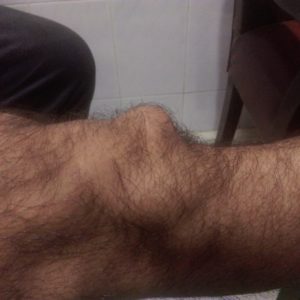
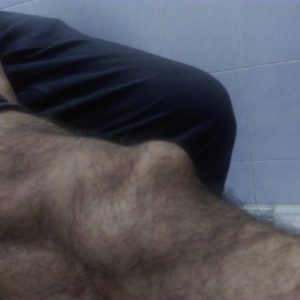
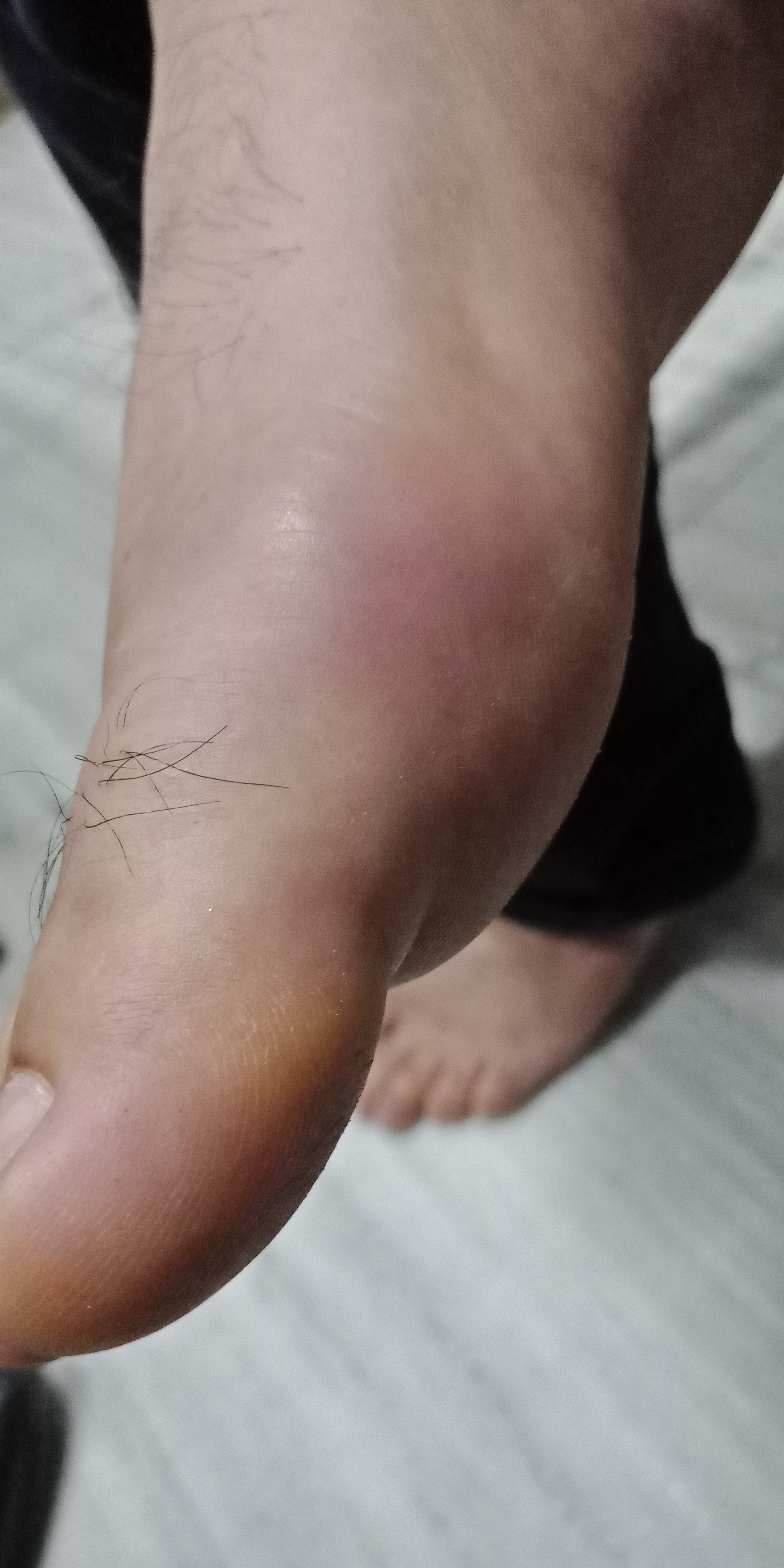
Podagra – Inflamation of 1st Metatarsophalangeal Joint (Joint of great toe to feet) in patient with Hyperuricemiam or elevated Uric Acid. Its a classical presentation of Gout.
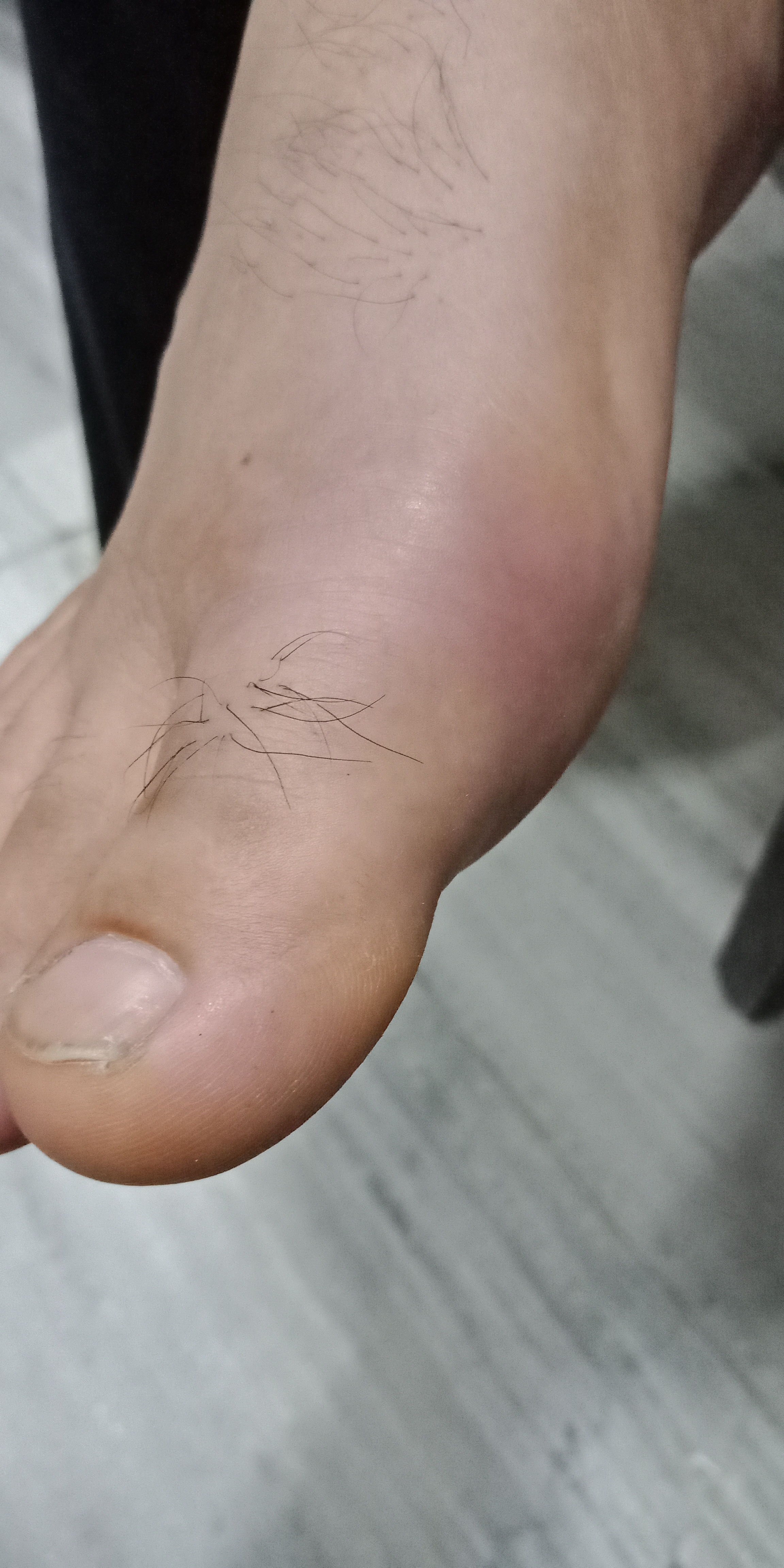
Podagra – Inflamation of 1st Metatarsophalangeal Joint (Joint of great toe to feet) in patient with Hyperuricemiam or elevated Uric Acid. Its a classical presentation of Gout.

